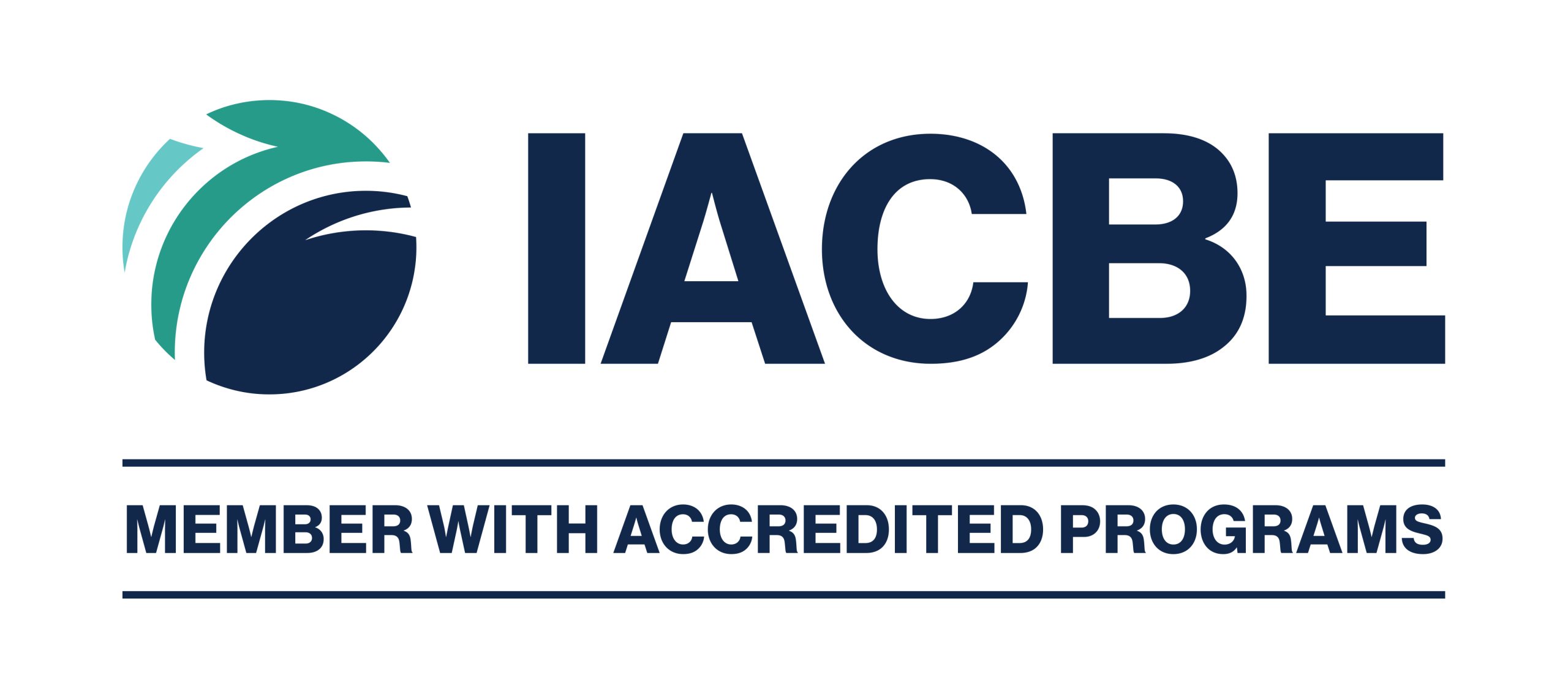Master of Business Administration
Take your professional game to the next level with an MBA.
If you’re looking for career flexibility or management training, an MBA is an excellent way to go. Follow your entrepreneurial ambitions or gain 21st-century skills that can help you attain executive jobs and prestigious leadership positions. Our innovative Master of Business Administration (MBA) programs create solid career foundations for adult learners. The MBA curriculum is perfect for students who already have some experience in the business world but are ready to take their professional game to the next level. Students personalize their degrees by selecting an MBA specialization program before beginning coursework.
Core courses focus on proven best practices in areas like marketing, finance, strategy, accounting and supply chain management. The curriculum takes you beyond passive learning by encouraging students to apply cutting-edge business practices to real-world challenges. Aspen graduates gain the essential skills needed to succeed as well-rounded business professionals.
Students hone their competitive edge by gaining organizational skills including:
- Team collaboration
- Conflict management
- Process improvement
- Technology deployment
Graduate Capstone
Students are required to complete a capstone project. This individualized project allows students to apply knowledge and skills acquired in their courses and real-world experiences. It is designed to promote vital assets of learning integration, synthesis, and expertise in change management and leadership, regardless of area of specialization.
Enjoy Flexibility– 10 online courses with program start dates every 2 weeks
Choose Where You Learn– Online courses
Affordable Monthly Payments
Focus on Your Passion– Choose your capstone project
MBA Program Specializations
Why More Students Are Choosing Aspen


MBA Courses
Aspen’s MBA curriculum features 10 courses designed to equip you with advanced leadership and management skills. Taught by experienced educators from diverse industries, you’ll have the opportunity to apply new knowledge directly to your field through the integration of your MBA capstone project. View the program page for each specialization for information on required courses.
“The faculty is top-notch, and the instructors are some of the best. Their ability to link learning materials to things in your life to make that “connection” is vital for learning, and Aspen instructors in the School of Business and Technology have been amazing for me.”
David G.
MBA Project Management, graduated April 2024Cost & Time to Completion
The Best Fit for Working Adults
We understand the difficulties in pursuing your MBA when you have a demanding work schedule. The 8-week courses at Aspen University allow you to complete your program in as little as 2 years.
Our Monthly Payment Plan Makes Us Different.
Paying for your MBA shouldn’t be complicated. Our Monthly Payment Plan makes it easy for working nurses to finance their MBA program.
Tuition Rates
| $12,900 | Tuition |
| $2,025 | Fees |
| $1,500 |
Estimated
Textbook
Costs
|
| $16,425 | |
Other Ways to Finance Your MBA

Students who have served, or are currently serving in the United States Military and their legal spouses are eligible to receive a Military Affiliation Discount from Aspen University.

Aspen University is currently approved by the U.S. Department of Education to offer federal student aid for the MBA program.

Aspen University maintains employee tuition discount partnerships with a large and growing number of organizations. Tell your enrollment advisor where you work and ask them to check for you prior to enrolling.

Aspen offers several payment plans for students to fund their education.
Earn Your MBA with Confidence

The School of Business and Technology at Aspen University has received specialized accreditation for its business programs through the International Accreditation Council for Business Education (IACBE) located at 11960 Quivira Road in Overland Park, Kansas, USA. For a list of accredited programs please view our IACBE Member status page.
Clayton W.
BA Information Management, graduated July 2021Admission Requirements

Application – A completed application; Aspen does not charge an application fee

Bachelor’s Degree – Official Transcript demonstrating a bachelor’s degree from an institution that is accredited by a CHEA recognized accrediting body or an international equivalent; applicants must have earned at least a 2.5 GPA in their bachelor’s program (see Catalog for more information)

Government-Issued Photo Identification – Identification must be valid, current, and legible.
Career Outlook
According to the Bureau of Labor Statistics, business and financial occupations are projected to grow at a faster rate than average from 2023 to 2033 with an average of 963,500 job openings each year, largely due to employment growth and vacancies due to retirements.
See each MBA specialization page for more specific Career Outlook information.
Average Annual Salary for Management Occupations
$137,750
Data pulled from the Bureau of Labor Statistics in Fall 2024. Salary can vary widely depending on geographical location and role.
MBA Frequently Asked Questions
-
What is an MBA degree?
-
Is Aspen’s MBA program accredited?
-
Can I finish my MBA degree online?
-
What specialties are offered in the MBA degree program?
-
Can multiple specialties within the MBA program be completed simultaneously?
-
Does Aspen recommend any supplemental learning to support students completing the MBA program?
A Master of Business Administration degree is a graduate-level degree that prepares graduates for advanced leadership and management roles in business.
Yes, the MBA program is accredited by the International Accreditation Council for Business Education.
Yes, Aspen’s MBA degree programs are completed online.
Aspen offers MBA degrees specializing in Finance, Information Management, and Project Management.
No, students can only complete one specialization.
Students without a strong mathematics background are encouraged to check out MBA Math. The focus at MBA Math is on the basics, making efficient use of your time. With the greater confidence of a firmer quantitative foundation, you will be positioned well to take on the challenges of the MBA program! You work at your own pace, according to your particular needs, making use of the teaching materials as you wish.


